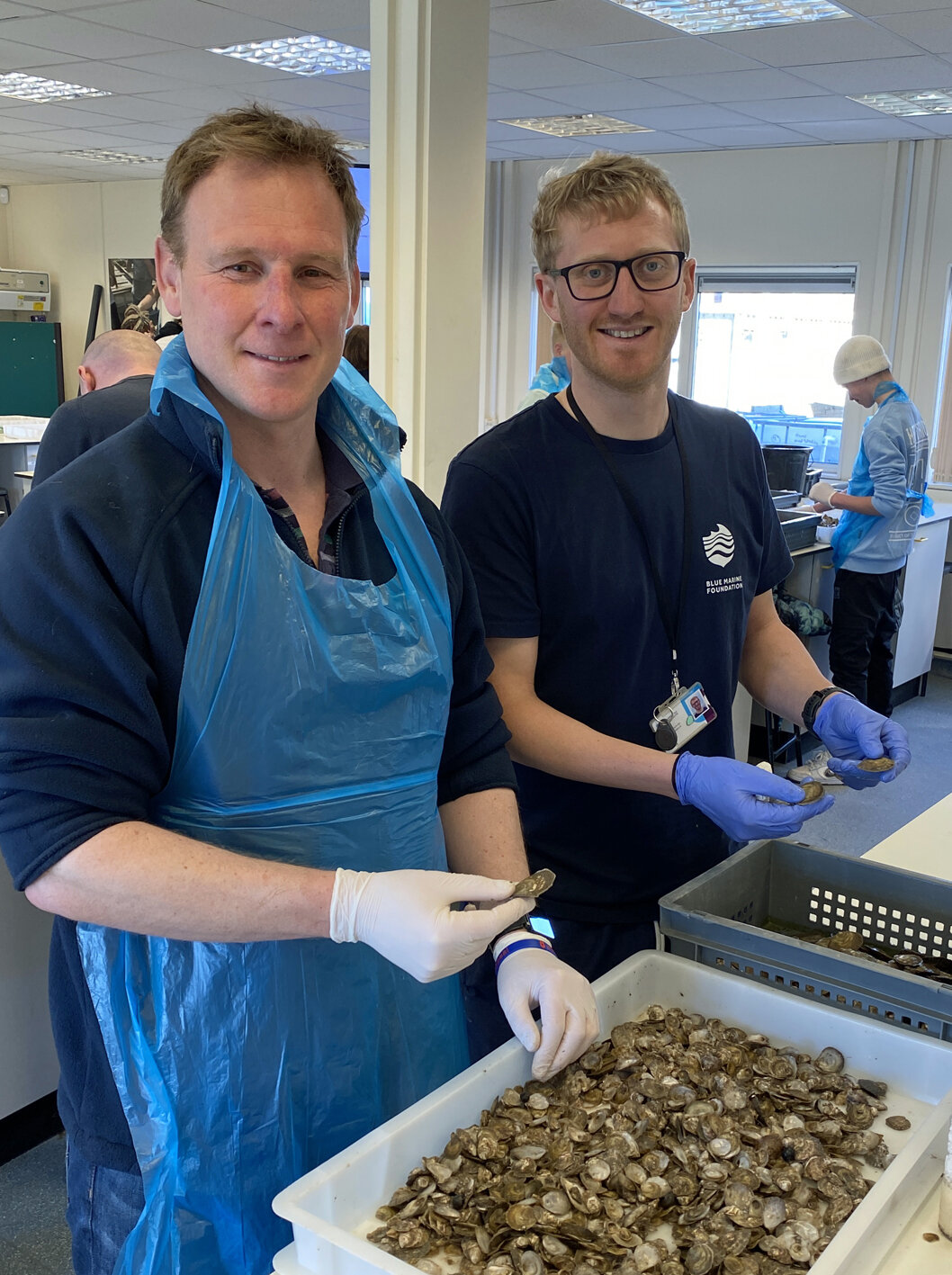
Wightlink supports ambitious plans to restore native oysters to the Solent
Wednesday, 14 June 2023
Wightlink Commercial Director Phil Delaney rolled up his sleeves to join volunteers cleaning and sorting more than 15,000 native oysters at the University of Portsmouth’s Institute of Marine Science.
The oysters were sourced from an estuary in Wales and have now been placed on a newly created reef on the bed of the River Hamble. Dr Luke Helmer organised the sessions as part of Blue Marine Foundation’s ongoing programme to restore native oysters to the Solent.
Wightlink already hosts oyster nurseries in the Lymington River near its ferry port for Blue Marine Foundation where millions of larvae are being released into the Solent. Oysters improve water quality as just one of them can filter up to 200 litres of water every day. They are also ‘ecosystem engineers’ providing a home for more than 130 other sea creatures in the Solent region. Reefs also have the potential act as a natural defence against coastal erosion.
Between 1972 and 2006, the Solent supported the largest native oyster fishery in Europe. But since then, the oyster population has fallen significantly and the fishery collapsed in 2013. Across the UK, native oyster reefs have declined by 95 per cent as a result of overfishing, pollution, disease, habitat loss and other pressures.
Phil Delaney says: “I enjoyed getting involved in cleaning the oysters ready for their new home in Solent waters and am delighted we at Wightlink are playing our part in the restoration project.”
Dr Luke Helmer adds: “Our volunteers are invaluable in helping us prepare the oysters for their new home in Solent waters as we work to create a healthy self-sustaining population and highlight their importance to both people and nature.”
www.bluemarinefoundation.com/projects/solent/
For more information about Wightlink, please contact:
Duty Media Officer
07870 906 189
[email protected]